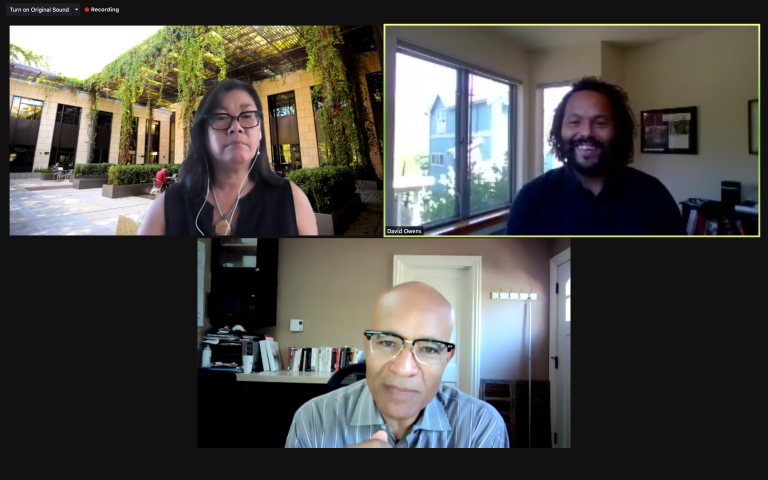Lawyers play a critical role in criminal justice reform, said David B. Owens M.A. ’10 J.D. ’10 at the inaugural event of the Tuesday Race Talks series hosted by the Stanford Criminal Justice Center and Black Law Students Association.
Owens is a partner at Loevy & Loevy, a civil rights law firm in Chicago. Owens said he is dedicated to advocating on behalf of clients seeking vindication for wrongful convictions, excessive force, race discrimination and other constitutional violations. He also taught as lecturer in law at the University of Chicago and continues to be involved with that university through its pro bono wrongful conviction clinic, The Exoneration Project.
To Owens, law school served as a mechanism of “taking power back” after his own experiences with racial profiling growing up in Auburn, Washington, and at Stanford.
“I knew from a very young age that I wanted to be a civil rights attorney,” Owens said.
In one civil lawsuit, Owens represented Tony Robinson Jr., an unarmed 19-year-old biracial man who was fatally shot in March 2015 by Madison police officer Matthew Kenny. A combination of the bullet’s trajectory and audio evidence shed considerable doubt on Officer Kenny’s account, but “the police department accepted [his] narrative no matter what,” according to Owens.
After his litigation was successful, Owens saw specific reforms instituted in the Madison Police Department, namely a requirement for at least two officers to respond to any mental health-related calls, as was Robinson’s situation.
“Withdrawing a firearm from the holster is a precursor to force,” Owens said. He encouraged non-lethal de-escalation in response to mental health crises by police.
Owens didn’t hesitate to put this victory in the larger context of police brutality: “There’s never a moment of jubilation about violence, because a settlement can never bring a life back.”
The “inherently narrow” reforms individual lawsuits can advocate for via injunctive relief after a favorable verdict are “not even the tip of the iceberg” as compared to pervasive police violence, according to Owens.
Still, Owens asserted that lawyers have a critical role to play in criminal justice reform, as lawsuits and political pressure are together instrumental to creating any changes. To ensure reform-related discourse extends beyond any single case, he suggested asking “fundamental questions about the way policing works and what it does.”
Litigation is a necessary component of this — abolishing qualified immunity can be accomplished legally, according to Owens.
According to Owens, these wider, controversial calls to “abolish” or “defund the police” are fundamentally nebulous, but he honed in on his core idea to redistribute resources to explain this movement.
“We want to reallocate resources away from the police, and instead reinvest those resources that will shrink the pattern of policing,” Owens said. “Resources are being spent on control through violence, as opposed to prevention on the front end.”
Event moderator Ralph Richard Banks, law professor and Faculty Director of the Stanford Center of Racial Justice, questioned this strategy’s ability to enact concrete cultural change in police tactics.
“If we reduce funding for training and professional development, it might leave on the force precisely the people who are the worst embodiment of the culture we want to change,” Banks said.
To alter police culture, Owens said, the best medium is through local politics, both improving training and fostering accountability “that can only come from the top down” and then be trained “from the bottom up.”
Impediments to such reforms and paradigm shifts, according to Owens, stem from society’s natural fear of such sweeping amendments to law enforcement, the systemic nature of racism and a lack of frank conversation with police.
“Things are often too adversarial,” he said. “There’s not enough room for mistakes. To get to transparency and accountability, we’ve got to be honest.”
He maintained that a state-sanctioned law enforcement effort is absolutely necessary, but that we must “rethink the point of intervention and not start with violence.”
Contact Shruti Sridhar at shrutisr ‘at’ stanford.edu.
